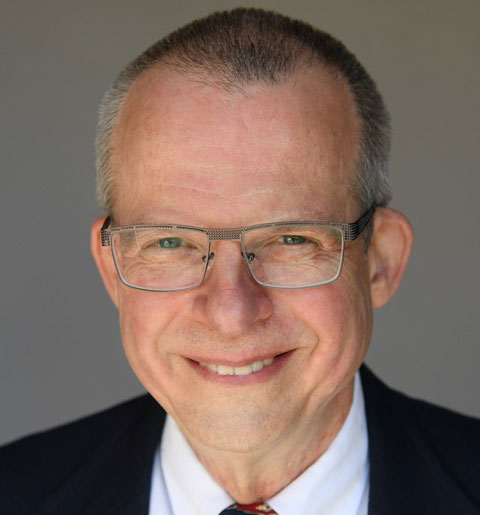Drug and Alcohol Rehab Near Seattle, WA
Considering drug and alcohol rehab near Seattle requires serious thought. With many options available, you need to think about what matters most to you in a treatment setting. You want the process to be effective. However, you also will want the facility itself to provide you with comforts to make your recovery a little easier to pursue. If you struggle with an addiction, you can find help in overcoming it. First, find out as much information as you can about addiction treatment centers. Then use the data to make an informed choice on where you want to get help from. To learn more about your treatment options, contact the team at Bayview Recovery today at 855.533.0409.


Choosing a Drug and Alcohol Rehab Near Seattle
First, you must recognize that you need help in pursuing recovery. Once you know that, you can start to make progress toward it by sorting through the many options that you have.
The Pacific Northwest is one of the most beautiful regions of the country. Therefore, you will find many choices for an addiction treatment center in Seattle or in the surrounding area. Narrowing your options will not be easy. However, if you focus your search on what you need, the process becomes faster.
Start by making a list of what you feel that you need in a rehab center, such as the types of therapy that might help you or the amenities that you want. Use this list as a guide for making your choice. Though you may not find a drug and alcohol rehab near Seattle with everything on your list, you can likely find a site with most of your requirements.
Bayview Recovery
Levels of Care and Treatment Options
for Alcohol and Drug Rehab Near Seattle, Washington
When it comes to treatment options, you must understand the levels of care versus treatment. The former refers to how intense the overall treatment will be based on the number of hours each day you spend at the facility. While the latter refers to the things that the rehab center does during those hours to help you to get better. For instance, treatments include types of therapy that may occur at one or more levels of care to address certain conditions. Levels of care that you can find at Bayview Recovery include the following:
PHP meets for most of the day, whereas IOP and outpatient programs require fewer hours at the treatment center. Aftercare programs help you after you’ve completed treatment to continue in your recovery efforts.
Treatment options may include opiate addiction rehab, alcohol abuse recovery, depression recovery, or dual diagnosis treatment.
Inpatient Treatment
Patients who opt for inpatient treatment receive 24/7 support and care for their addiction issues. Our drug rehab near Seattle also offers extended care stays for those who need more time to address their problems. Many studies on addiction treatment show that an extended stay at a facility can lead to higher chances of remaining clean and sober after completing a program.
Therapy programs made available to clients while they receive treatment at our addiction treatment program near Seattle include:
The comprehensive suite of services offered through Bayview Recovery Center’s drug rehab program near Seattle allows clients to work through underlying issues. Many people come in with mental health disorders and trauma from the past that exacerbates their substance use disorder.

Partial Hospitalization
Sometimes a person’s lifestyle does not work with an inpatient stay. Clients who fit this description can opt for a partial hospitalization program (PHP). They still receive access to the same programs offered through our inpatient treatment program. However, they go home at night instead of spending the night at our facility. That allows them to see to other obligations while still receiving treatment at Bayview Recovery Center’s drug rehab program near Seattle.


Outpatient Treatment
Another option for those looking for help at an addiction treatment center near Seattle can choose to take part in outpatient treatment. Most clients end up going to 10 to 12 different sessions each week. Our treatment specialists and physicians help them create a treatment plan most beneficial in assisting them to remain in recovery while living in the real world.
Amenities That Make an Addiction Treatment
Center in Seattle More Accommodating
When it comes to the amenities of a drug and alcohol rehab near Seattle, you want to find a location that offers comfort in addition to effective treatment. At Bayview Recovery, our amenities set us apart from other options for an addiction treatment center in the Seattle area. These extras include the following:
- Art therapy
- Yoga therapy and mindfulness meditation
- Location in stunning Tacoma, WA
- Recreational activities such as snowboarding, skiing, and white-water rafting

Benefits of a Drug Rehab Program
Taking part in a program like that offered at Bayview Recovery Center’s drug rehab program near Seattle is the chance to build a support network. It’s helpful to have people in your life who have shared experiences and understand the struggle of remaining sober. You can also contact for support groups and programs that can help when you find yourself confronted with the temptation to start using again.
These features add to the human element of our rehab center. We understand that going through the recovery process is complicated. Therefore, we offer you these many ways to relax, enjoy yourself, and learn to handle stress.
We want this to be your first and last recovery. We believe in you.
Connect with Us
At Bayview Recovery
Don’t let drug or alcohol addiction hold your life hostage. You can get the help you need to walk toward freedom. First, start with a call to us at Bayview Recovery at 855.533.0409. With our numerous treatment program options and stunning setting, you can find the support you need in a therapeutic location to make your trip toward recovery a little easier. Find out more about us today to make your recovery possible for your future.
“The staff at the center has been remarkable in their care for our loved one. Tuni was with us the whole way as we tried to get this person into treatment. They continue to assist us as the process continues. Great work!”
Ray O
“I have been trying to get sober the past 3 years and I have been to treatment 5 times. Bayview Recovery was my 6th time. They helped me get to 142 days sober! I was a handful hot mess when I got there but the team never gave up on me. They work with families and they truly care about them too. Bayview house’s are clean and comfortable and the staff is amazing. They plan for fun events weekly and they want you to have fun. If your looking for something different call them it will save your LIFE!”
Cindy J
“Bayview is dedicated to providing clients the healthiest environment to develop a solid foundation in their recovery. The therapists and medical team are devoted to ensure clients have the best individualized care. I highly recommend Bayview for anyone seeking a highly professional treatment program. The care and compassion given to clients is remarkable.”
Robin M
“This is a fantastic facility with outstanding staff. If you or a loved one is struggling this is a great program to start the journey of recovery and get life long skills and relationships to begin a new life!”
Garrett T
“Just picked up our daughter after 90 days at Bayview Recovery. Loved the staff and facility, do not know what the future holds ???????? but while at Bayview , always felt informed. Highly recommend, incredibly helpful especially at the very beginning when we were so helpless and needed help the most – God Bless.”
Rosie S
Take a Look at Our Blogs
Despite their seemingly harmless appearance and widespread popularity, the dangers…
Have you noticed your partner or loved one's drinking habits…
Dave Cundiff, MD, MPH is an experienced leader in the field of Substance Use Disorder treatment. He works with patients suffering from Substance Use Disorder to evaluate their medication needs and prescribe treatments accordingly. In addition, he regularly participates in all-staff debriefing sessions involving peers, nurses, and other prescribers. He also reviews and advises on policies, procedures, and techniques for treating substance use disorder.








